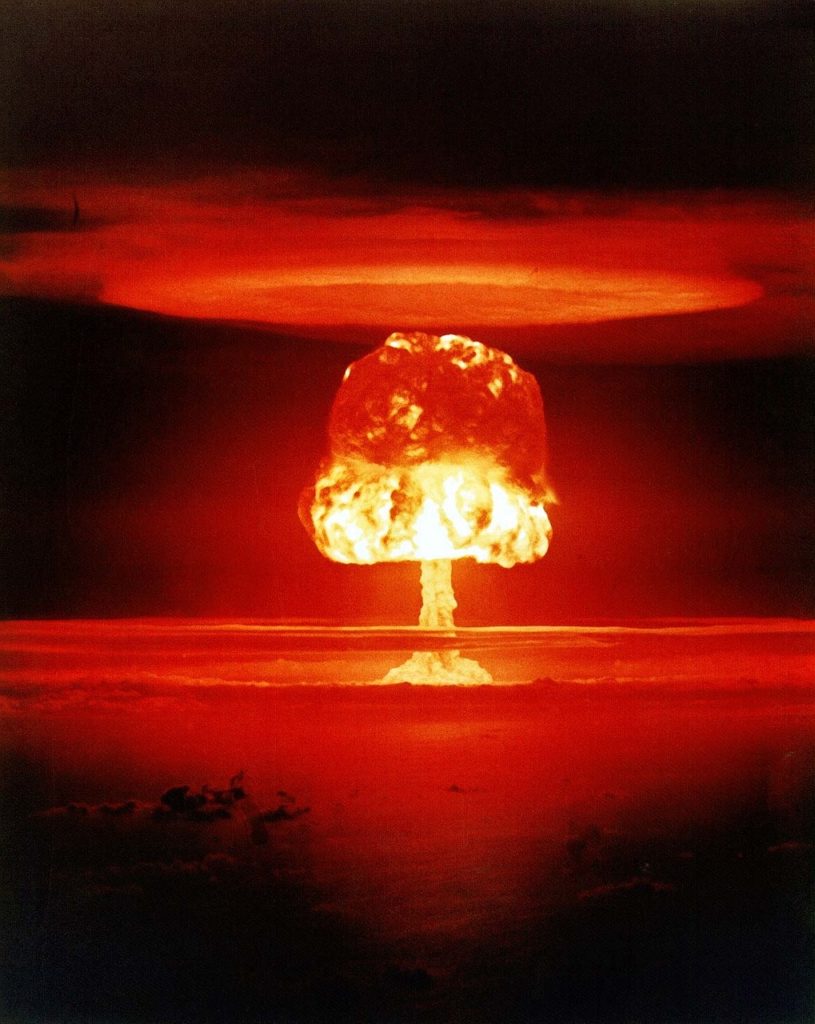As published by NEWSMAX:
If your enemy believes he at war with you, are you at war?
Americans see our involvement in Ukraine as a “proxy war” and most of us are going about life as normal, attending soccer practices and texting one another memes during staff meetings.
By contrast, the Russian people believe their nation is under attack from the United States. So great is this belief that a majority of Russians (54 percent) claim to live “under constant fear” of nuclear attack.
Ordinary Russians see the conflict as existential. A small but hostile nation on their Southern border has aligned itself with the historic enemies of the Russian state.
Americans once held a very similar position ourselves.
In October 1962, President John F. Kennedy laid out his own set of red lines against Cuba, a small but hostile nation on our Southern border which had aligned itself with the Soviet Union.
The president blockaded and embargoed Cuba, bringing the the U.S. and the U.S.S.R. to the brink of nuclear conflict. The world avoided Armageddon that month, but the Cuban economy remains in tatters to this day under ongoing U.S. sanctions.
Just bring up this comparison with Foggy Bottom globalists in Washington, DC. You’ll get the full outrage treatment. “Putin is Hitler 2.0,” and “He’s unstable and wants to reassemble the Soviet Union!” My favorite is, “nobody could have predicted this.”
Wrong: many smelled disaster as NATO expanded into Poland, Hungary, and the Czech Republic in 1999.
Bill Clinton’s own Secretary of Defense, William J. Perry, warned that expanding NATO would be a prescription for disaster.
The very man who invented the notion of Soviet containment, George F. Kennan, said the expansion of NATO into Eastern Europe was, “the most fateful error of American policy in the entire post-Cold War era.”
Yet NATO blithely ignored these warnings and others, doubling down to admit Bulgaria, Romania, Slovakia, Slovenia, Estonia, Latvia and Lithuania in 2004. Sure, NATO membership improved the security of those nations, but how did Estonia et. al. enhance security for the average citizen of Washington, Paris, or London?
In 2007, Putin pushed back. In a famous Munich speech, the Russian leader drew a red line, accusing the United States of trying to create a unipolar world. “NATO has put its frontline forces on our borders,” Putin fumed, which “represents a serious provocation.”
Yet instead of seeing the red Russian warning lights blinking danger, NATO continued to creep towards Moscow. In 2008, the alliance welcomed Georgia and Ukraine’s aspirations to join.
As Secretary of Defense Robert Gates wrote in his book Duty, “trying to bring Georgia and Ukraine into NATO was truly overreaching…recklessly ignoring what the Russians considered their own vital national interests.”
While Russian interests are clear and well-defined, when pressed on American interests in the Ukraine, the war hawks come up sputtering. Spending $120 billion taxpayer dollars “sends a strong signal to the Chinese.” Our involvement “stops Putin from annexing the rest of Eastern Europe.” Then there’s the Pax Americana utopia of “maintaining the international order.”
Just don’t ask for hard proof of these benefits.
As the war drags into its second year, some Americans do have the gall to ask and a growing percentage of Republicans and independents are increasingly skeptical.
President Biden pledges we’ll stick with our Ukrainian allies “as long as it takes” but his advisors can read a poll: they know the play clock is ticking down.“Ukraine’s fight for freedom is a marathon, not a sprint,” said Defense Secretary Lloyd Austin last week. Similarly, Chairman Milley cautioned it would be “long and bloody.”
It seems the administration is attempting to prepare the public for another long, costly conflict. Will Americans support another 20-year war protecting a fragile nation state? Doubtful. Biden’s war has already become fodder for his election opponents.
In Russia meanwhile, popular opinion for the war with Ukraine has increased. Russians’ support for Vladimir Putin now stands at a stratospheric 83 percent.
Morale matters.
Spring’s much-hyped Ukraine offensive never materialized, but a Russian summer counterpunch may be underway.
On July 18th, Colonel Serhi Cherevaty, a Ukrainian army spokesman, revealed Russia is amassing troops in a new front north of Kupyansk, “The enemy has concentrated a very powerful group… more than 100,000 personnel, more than 900 tanks, more than 550 artillery systems and 370 rocket salvo systems.”
Though war is unpredictable, certain maxims tend to determine outcomes. One is size. Russia boasts three times the population of Ukraine from which to draw troops. A second is production. Russia maintains a manufacturing base that can outproduce the west in the war’s main weapon: artillery rounds.
As President Biden let slip to CNN, the Ukrainians are “running out of that ammunition, and we’re low on it.”
Here, the president inadvertently hit on a real American interest—our own manufacturing base and critical munitions stockpiles, which we’ve neglected since the close of the Cold War. In a hypothetical match up with China, some estimates predict the United States would run short on critical munitions in less than a week.
For that reason, we can thank Putin for highlighting a weakness—it’s well past time to shore up our own defenses.

